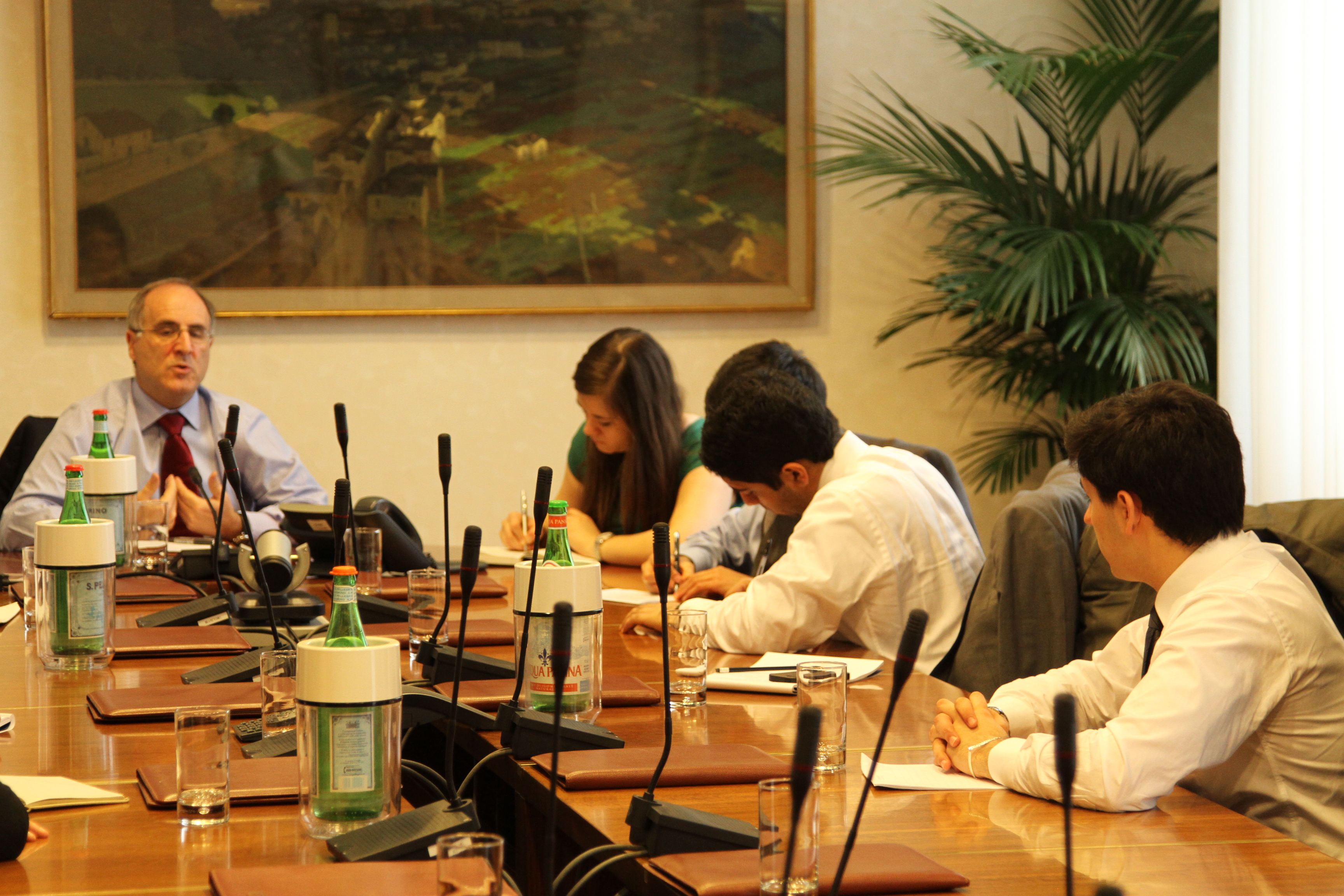
BY AAHAN BHOJANI
Having caught a 6am train to the town of Bergamo from Milan, our troupe of 11 Yalies was eager to meet the CEO of Italy’s third largest bank, UBI. As one of the leaders of Europe’s banking sector, a world that has received much attention lately, Victor Massiah greeted us as we entered the bank’s picturesque headquarters. With a career that spanned across continents, from Libya to Australia, Mr. Massiah through his experiences and postings embodied the very idea of ‘international finance.’
While we came to the table looking to understand the drivers behind Europe’s morose economic climate and the reasons for financial turmoil in the continent, we found that we left the discussion with much more than just answers to these questions: we left with a fresh understanding of where debate in the finance world is headed. Despite the fact that there is no consensus on the pathway out of these troubled times, our conversation pointed us to the fact that we need to fundamentally revise our banking model, at the very heart of capitalism, to reflect the growing complexity of our world. Europe needs a sustainable model of growth that reflects the interests of economic agents, political platforms, and diverse populations.
Our interaction with the CEO of UBI was particularly useful because it allowed us to understand banking strategies that have helped UBI weather the economic storm. When the economic crisis began, UBI was the 5th largest bank in Italy. Today, it is the 3rd largest bank in Italy. Through protecting itself as much as possible by focusing on its balance sheet (which came at the expense of profit), UBI swam against the current in weathering the economic crisis.
From debating potential models of regulation to growth strategies for banks, and from contemplating new economic indicators to the role of media in the corporate world, our discussion was truly a multidimensional one. If Europe seeks to stabilize its financial sector and its complex economy, it will need to realize the power of spending in the long term and cutting in the short term. It will need to muster the political will to tackle public expenses and labor taxes. And most importantly, it will need a new set of principles to direct its movement towards economic success.

